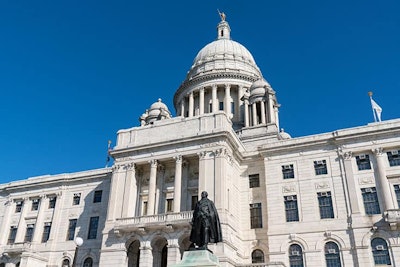

Senate Majority Leader Michael J. McCaffrey and Democratic colleague Sen. Joshua Miller introduced Senate Bill 568 March 9, which outlined the details of possession, taxing, local participation, home grows, social equity and retail, as well as establishing a five-member Cannabis Control Commission to oversee licensing.
“The act further provides for the creation of [a] social equity assistance fund and program to be funded by licensing and renewal fees, as appropriated,” the bill states. “The act also provides for an expedited expungement procedure for prior cannabis arrest and convictions involving 1 ounce or less of cannabis.”
The bill’s 11-tier licensing system costs for cultivators would range from $100 for up to 1,000 square feet of outdoor grows, to $20,000 for indoor grows between 90,000 and 100,000 square feet. Other annual licensing fees include $5,000 for manufacturers, $5,000 for independent testing laboratories and $20,000 for retailers, according to the bill.
Additional revenue would come in the form of a 20% tax on retail sales, which breaks down to a 10% cannabis excise tax, a traditional 7% sales tax and a 3% local sales tax that would stay in the city or town where the point of sale occurred, according to the bill. Local municipalities could opt out of issuing retail licenses, if voters adopt a ballot measure that prohibits dispensaries in their communities.
“We want to provide cities and towns with the ability to opt out, but we cannot allow an overly burdensome patchwork of regulation throughout our state,” McCaffrey said in a press release. “We know from experiences in other states that less parochialism and lower fees leads to greater transparency and a more competitive market. If a community wants to opt out and forgo tax revenue that is one thing, but we also need to make sure the process is open and transparent.”
Next door to Massachusetts, where adult-use retail sales began in 2018, Rhode Island has had a front-row seat to the successes and pitfalls that came with legalization just across its state border. In addition, legalization efforts in nearby New Jersey may be an incentive for nearby state legislatures, like Rhode Island, Connecticut and New York, to push onward.
RELATED: New Jersey Governor Signs Cannabis Legalization Bills Into Law
According to Rhode Island’s S.B. 568, the Cannabis Control Commission would determine the maximum number of dispensary licenses in the state, “however a minimum of three licenses for retail sales of cannabis shall be granted for issuance in each municipality except for any municipality which has elected against granting of any licenses.” In addition, the commission would grant one additional license for every 10,000 residents in excess of 30,000 residents.
McCaffrey and Miller said they anticipate the first adult-use retailers to obtain approved licenses would be already established medical dispensaries, which there are currently three in Rhode Island, but that number is expected to grow to nine by the end of the year, according to The Providence Journal.
“Cannabis legalization is a monumental shift in public policy that effectively creates a new economy,” Miller said in a press release. “We want to ensure as many Rhode Islanders as possible have the opportunity to participate in this new economy. That is why we set low, tiered licensing fees and we are also calling for the creation of a Cannabis Equity Fund to help individuals who have been directly and indirectly impacted by our past policy of prohibition.”
McCaffrey and Miller’s 68-page bill could blend well with Gov. McKee’s adult-use cannabis proposal he released Feb. 11 as part of his $11.2 billion fiscal 2022 budget. In the budget, the governor stated his proposed cannabis program is anchored in the principles of equity and public health and safety.
Under McKee’s proposal, there would be an annual rollout of 25 cannabis retail licenses in the first year of a three-year initiative, with five licenses set aside for qualifying minority business enterprise applicants.
The Office of Cannabis Regulation, within the Rhode Island Department of Business Regulation, would license private business applicants and ensure compliance with the state’s strict packaging, labeling, security and safety requirements, according to the budget proposal.
The governor’s proposed excise taxes on cannabis cultivation and retail, along with traditional sales taxes, would, in part, be allocated via 25% of revenues going toward the regulatory, public health and public safety costs associated with adult-use cannabis, and 15% going to local municipalities.
If retail sales start as expected in April 2022, McKee’s budget predicts that taxing and licensing an adult-use cannabis program would generate $16.9 million in general revenue in 2023.
The governor’s program would also create a Cannabis Reinvestment Task Force, “which would make recommendations on the long-term investment of marijuana revenues in the specific areas of job training, access to capital for small businesses, affordable housing, health equity and community development.”


























